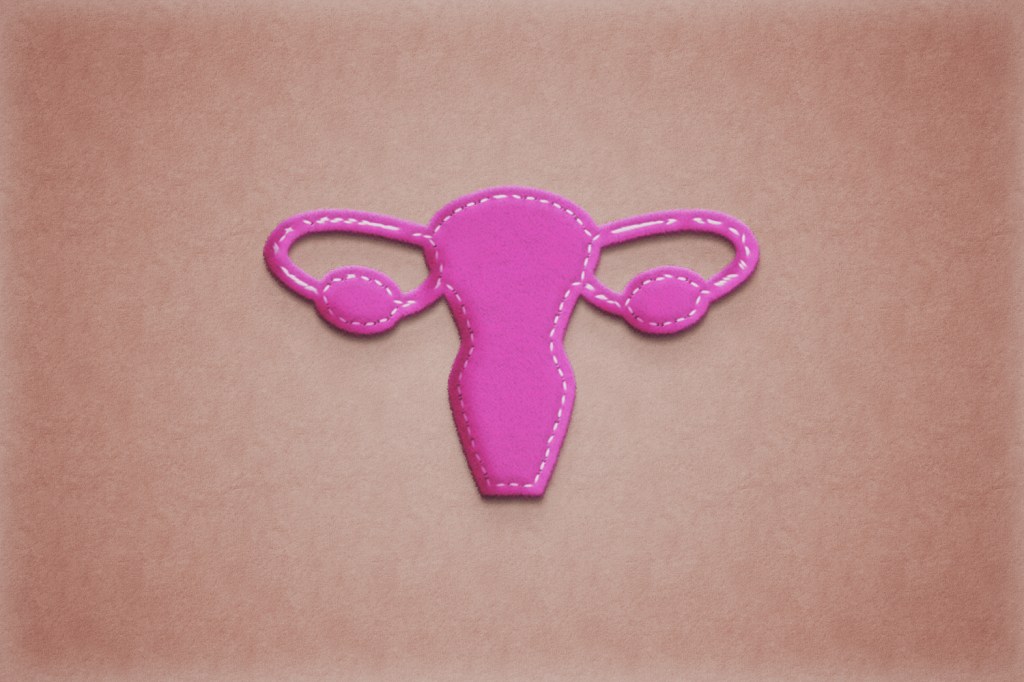Gaslighting is a form of psychological abuse, but Elizabeth Ruzzo says she experienced it firsthand after telling a doctor that she suffered from suicidal ideation after taking birth control pills.
Ruzzo’s doctor told her there was no connection between birth control and self-harm, but she decided to stop taking the pill to see if her mental health improved. When it did, Ruzzo grasped the disconnect between women’s unique hormonal makeup and blanket-statement practices from medicine today.
Her realization led her to found Adyn Health, a startup that proactively helps women make health decisions that complement their hormonal state and background. The company started with, of course, helping people pick more personalized birth control.
Ruzzo is part of a group of growing entrepreneurs who are betting that hormonal health is the key wedge into the digital health boom. Hormones are fluctuating, ever-evolving and diverse — but these founders say they’re also key to solving many health conditions that disproportionately impact women, from diabetes to infertility to mental health challenges.
Many believe it’s that complexity that underscores the opportunity. Hormonal health sits at the center of conversations around personalized medicine and women’s health: By 2025, women’s health could be a $50 billion industry, and by 2026, digital health more broadly is estimated to hit $221 billion.
Still, as funding for women’s health startups drops and stigma continues to impact where venture dollars go, it’s unclear whether the sector will remain in its infancy or hit a true inflection point.
The future is proactive
Ruzzo views Adyn as a precision medicine startup. Its main product is an at-home test that tracks hormone levels, assesses genetic risk for specific side effects, and then gives recommendations for which birth control methods best suits the customer with the fewest side effects.
By Ruzzo’s estimates, 98% of sexually active women use birth control for 30 years of their life. That sort of lifetime value proposition made the company look like a sweet deal to founders, and Adyn raised a $2.5 million seed in April 2021 in a round co-led by Lux Capital and M13.
The moonshot, though, is using that as a way to become a trusted partner in a woman’s life, helping understand baseline hormone levels throughout those 30 years.
“My hope is that we can use precision medicine approaches, including looking at genetic markers to identify reliable diagnostic criteria, that can remove that uncertainty and pain and diagnostic odyssey that people have to go through,” Ruzzo said.
If Adyn becomes a trusted partner with teenage women, it could reach a point where it can detect changes in hormone levels over time.
“The hormone reference ranges that are used [in labs] are too broad to be personalized, let alone prescriptive,” she said. “And so what we’re hoping to do is correct for things that we know affect hormone levels like age, weight, ethnicity and compare you to your own expectations.”
If the first wave of digital health was a company like Ro, which answers consumers when they have a condition such as erectile dysfunction or hair loss, the second wave will look more like Adyn, which helps consumers navigate their health before getting diagnosed with a condition or experiencing issues.
The industry standard is still to wait for consumers to realize they have a condition, and then go to the doctor to manage their symptoms or look for a cure. A new startup that recently graduated from Y Combinator is finding its way into hormonal health through that angle.
One-tenth of all women are impacted by a hormonal condition
Veera Health is a startup that wants to help women in India manage polycystic ovary syndrome, or PCOS. The hormonal condition can cause irregular periods, infertility or gestational diabetes in women, as well as acne, weight gain and excessive hair growth. Plus, PCOS is far from rare, impacting one in 10 women.
Co-founded by sister duo Shashwata and Shobhita Narain, Veera Health aims to capitalize on the current fragmented and stigmatized world of women’s health in India. The startup is an online clinic that focuses on helping women navigate the symptoms, from connecting them to care managers to offering a directory of mental health support tools.
Veera Health wants to help women in India navigate polycystic ovary syndrome
A problem many women face is the fragmentation in how PCOS treatment is offered: A woman experiencing symptoms may have to toggle between dermatologists and gynecologists, balancing different opinions and decisions the whole time. Veera Health tries to bundle up those experiences in a standardized yet digital one-stop shop.
As far as single-condition digital health startups go, Veera Health doesn’t have much competition beyond Tia and Perla Health. On one end, PCOS impacts many women and is tied to reproductive disorders — which melds well with how many investors are pouring millions into fertility startups. Veera Health recently raised a $3 million seed round by a crop of investors, for example. On the other end, PCOS is one of the more elusive — and not-so-easily diagnosable — conditions out there.
The challenge that remains with PCOS is that there is not a single definitive test to diagnose it. The Rotterdam criteria require patients to hit two of the following three conditions: anovulation, hyperandrogenism or polycystic ovaries on an ultrasound. Additionally, there is no single cure for PCOS symptoms. Thus, Veera Health, and any PCOS startup, is placed in a gray area: It can’t consistently diagnose or solve PCOS, but it can manage symptoms well enough to make women’s lives easier.
Still, Simran Suri, an analyst at Equal Ventures, thinks that exact gap underscores the need for consumers to get access to specialized care and innovative testings. Suri has spent months researching innovation in PCOS and searching for the opportunity for venture-backed startups in hormonal health. After meeting a number of companies, she thinks that PCOS startups represent a portion of the market that is currently underserved in women’s health: those who are not looking to have children.
“There are so many women out there … who may suffer from PCOS that don’t want to have kids ever, or are not actively trying to have kids or are too young to have kids, and all those women are patients that are falling through the cracks,” she said. “And so that’s part of the reason why I think leading with PCOS is so important … you’re able to then catch all those people who would not be … getting to a diagnosis by going through fertility channels.”
Suri thinks that the first wave of women’s health was focused on fertility companies, and the second wave will be other areas, such as PCOS, but also menopause and sexual wellness.
“It’s a process,” she said. “I think especially for a community and a group of people that has been pretty underserved by existing healthcare systems and practices, it is part of why the market looks the way that it does.”
A recent acquisition in the hormonal health space by Ro might offer hope that the second wave of women’s health startups will arrive sooner than later.
Ro buys Modern Fertility for $225M
Ro, a digital elective care and telemedicine provider, acquired Modern Fertility last month for north of $225 million. The 25-person company was sold in a majority-equity deal, signaling to some investors about the exit opportunities in hormonal health despite ongoing complexities.
Modern Fertility was co-founded by Afton Vechery and Carly Leahy in 2017 to spot potential fertility issues early on in women. Vechery explained how teaming up with Ro gave Modern Fertility solid distribution through telemedicine and pharmacy capabilities, instead of having to rebuild all of that from scratch again.

“What would it look like if we could plug into that overnight and run even faster; what would that mean for our customers and women’s health?” she said, adding that Ro and Modern Fertility “united [on] the agenda around building a patient-centric healthcare system and getting there faster — because quite honestly, we just don’t have time to lose in women’s health. That is what we said yes to.”
It’s still one of the rare exits, and as far as unicorns go, there are virtually no companies valued at over $1 billion that focus explicitly on women’s hormonal health.
Ro was founded in the same year as Modern Fertility and is valued at $5 billion, while Modern Fertility got bought for a fraction of that. Both were founded to focus on out-of-pocket care for emotionally charged and stigmatized health conditions, such as erectile dysfunction and infertility. While Ro was betting on reactive care (offering medicine for those who need it), Modern Fertility was betting on proactive care (spotting fertility issues before attempting to conceive). The contrast in outcomes isn’t meant to undermine Modern Fertility, which could grow into a $1 billion business underneath the Ro umbrella, but is worth pointing out as an example of how scale is reached.
While complexity, stigma and underinvestment have limited the number of hormonal health startups on the market, the tide might be changing. As shown by recent investments, projections and an acquisition, it’s clear that the tech community is waking up to the idea of hormonal health as a key competitive advantage in the consumerization of healthcare.
Today, startups that want to break into the market have to focus on a single condition, such as PCOS or fertility and then decide whether they want to focus on proactive care or post-diagnosis management. Neither approach is perfect, and both are moonshots in their own way, but they signal the future of women’s health as one that includes optionality and ownership. And for the integral role that hormones play in everyone’s life, that seems like a big step, albeit a late one.
Blossom Capital’s Louise Samet talks hormone tracking and femtech bets






























Comment